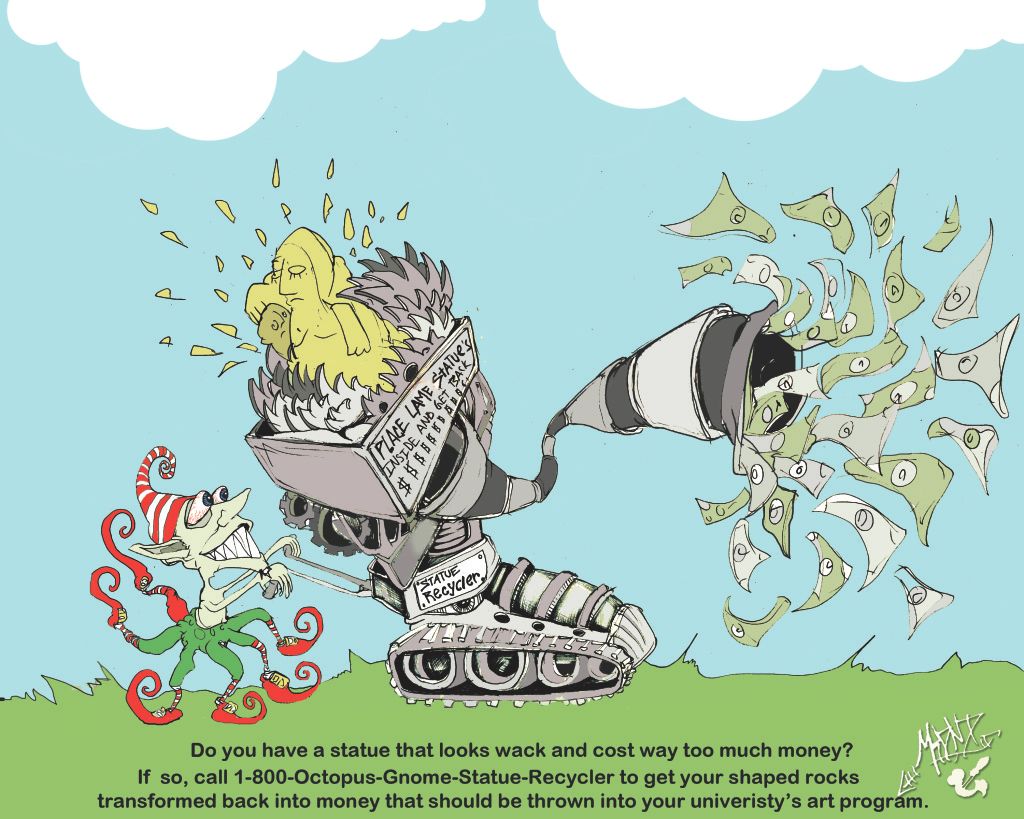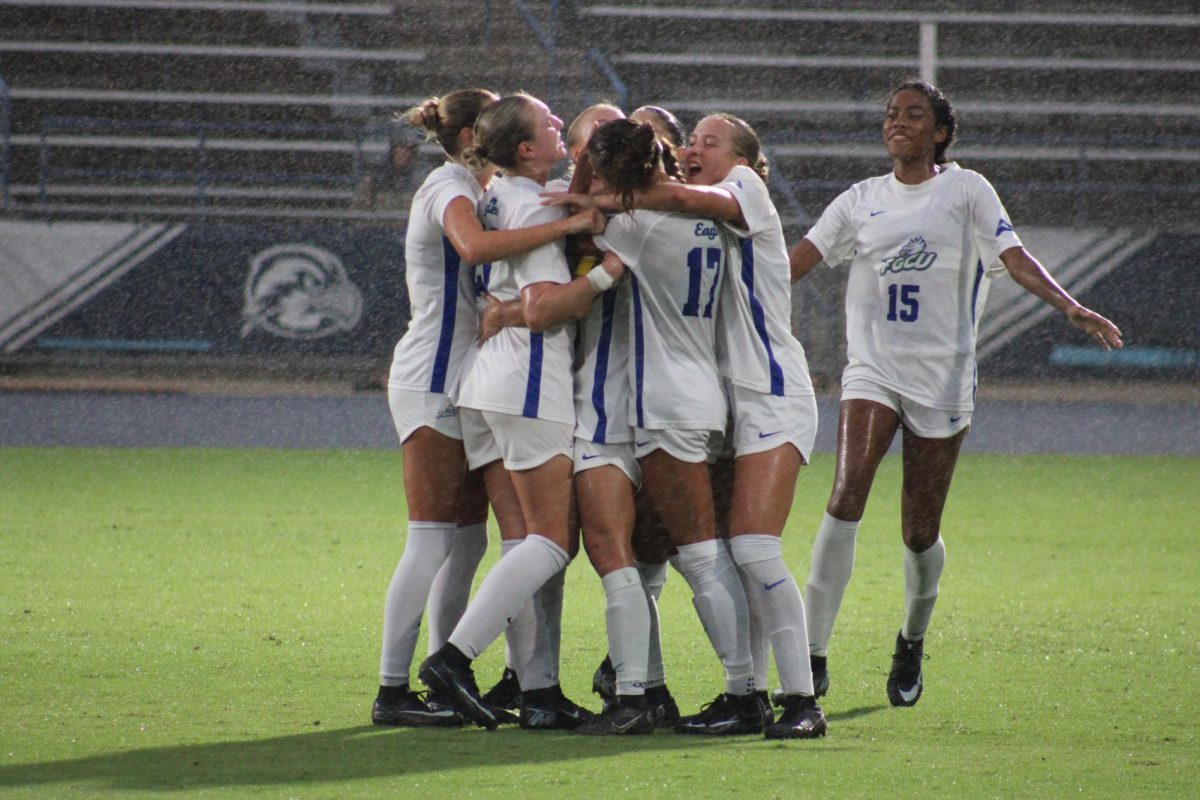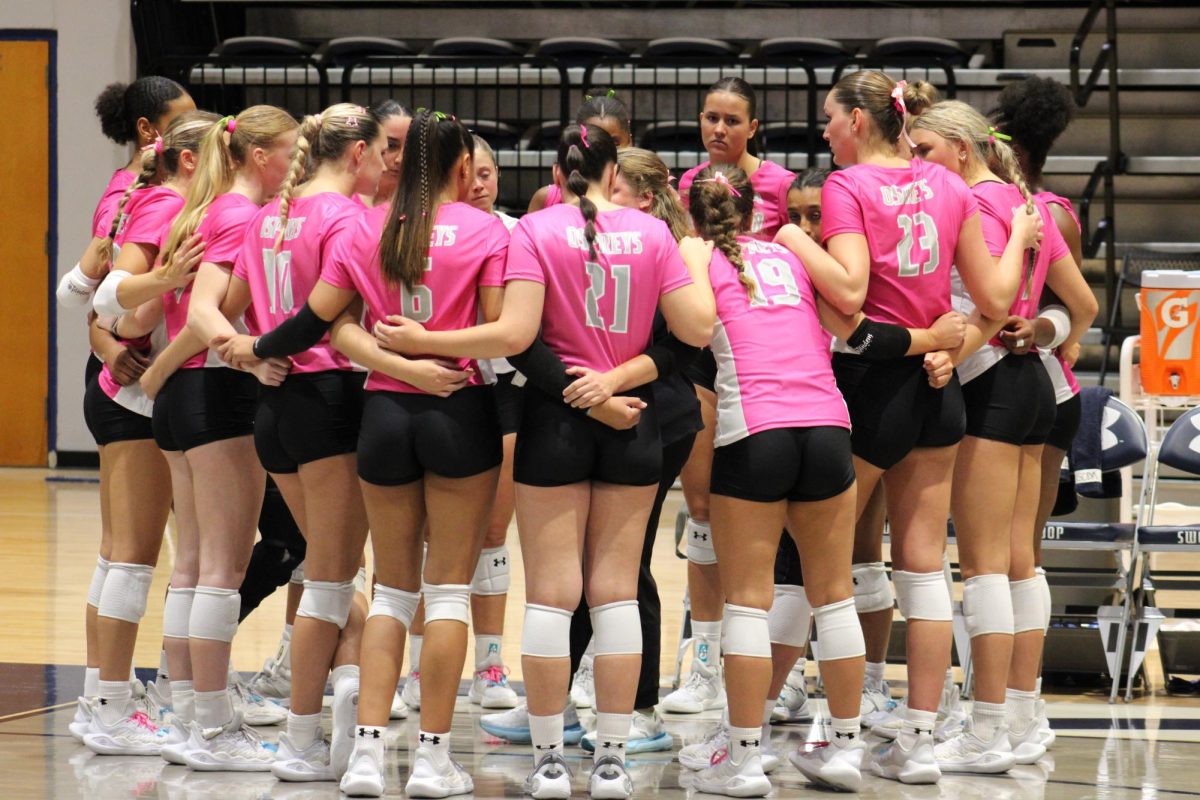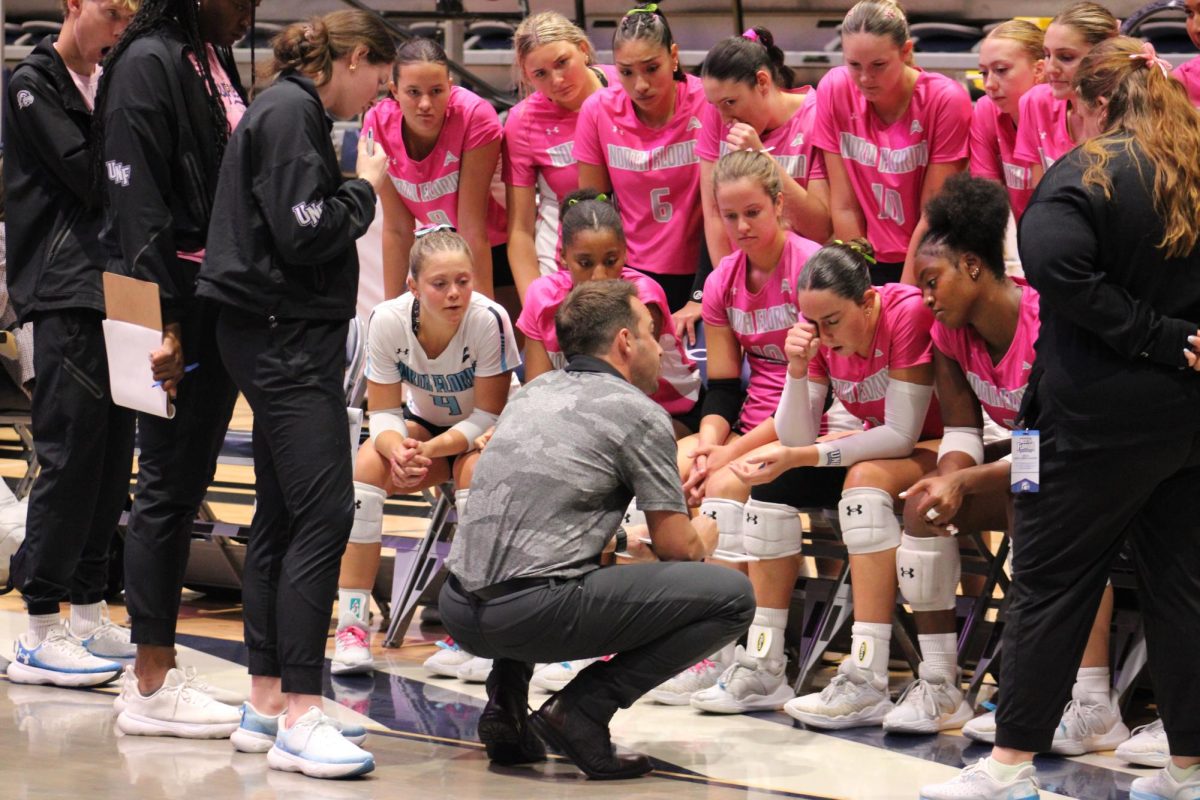
Although the Spinnaker has written editorials endorsing artistic appreciation on campus, the economic crisis should cause legislators to re-look at the process and update a 40-year-old law that requires new state buildings to spend .5 percent of their value on art.
Art is a wonderful ascetic accompaniment to an academic community, but not in the midst of an ongoing tuition hike and an economic crisis.
The artist for one of more recent projects, the mother and daughter statue in front of the new College of Health, is from Colorado.
This statue, unlike the Gandhi statue on campus, was not donated to the university.
So not only are we spending all of this money on art, but we are outsourcing the art to out-of-state artists.
Giving preference to local artists when deciding who gets the contract should be standard procedure. Jacksonville has many artists with the talent to provide alternatives to a statue.
This also increases the working relationship between working artists and the university.
But over 60 percent of the art state buildings acquire through the art in state buildings program were completed by artists from Florida, according to the Florida Division of Cultural affairs Web site.
The money spent on the College of Health statue could have been used more efficiently on campus.
Hiring an adjunct professor to teach part time this fall could have been one way to spend it.
Other issues to which the money could apply includes increasing the hours of operation for on campus resources including the Library and Student Union as well as the hours of operation for amenities on campus like the fitness center and the Arena’s basketball and racquetball courts.
A college student needs a lot of bang for their buck.
So requiring a university to spend a certain amount of money on art, in this financial climate, is ridiculous, especially when the university recently acquired the Museum of Contemporary Art Jacksonville, extending to it up a $500,000 credit line.
Spending money on art in a recession is like buying china dinnerware when you can’t afford the food to put on the plate.











